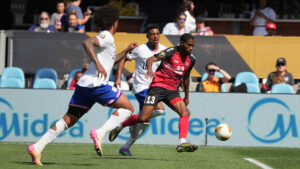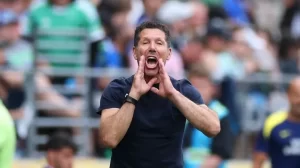
After six years with Yamil Bukele at the head of Indes, the sport took another turn, one more focused on high performance.
6 years of the government of Nayib Bukele and his brother Yamil are over commanding the National Sports Institute (INDES), appointed under the argument of working Ad Honorem to lower criticism for skipping the law of placing a relative in a state entity. Yamil has been one of the most visible faces and celebrated by the Government, even related to tourism on the issue of surfing, involved in football, and criticized, negatively and also positive, by changes.
These lines do not seek to generate an opinion or for or against, but to give a very general panorama, and perhaps too ambitious to summarize, in a few lines, the changes made and the implications it has had for the reader to decide how to evaluate the management.
At the macro level there is a change of sports policy, much more participatory and in direct line to the interests of political propaganda (what government has not done it in the sport, some can point out. Think of the Olympic Games in each city that perform them and how governments take breast of it), in addition to having a direct line with the president.
The most important change has been to break with the idea that the FMLN brought, more social, massifier if you want (we will not go into details of analyzing what is better), to bet on elite sport. This has not implied, however, there are no social programs (it has several indes), but the visible face has been to promote international results with outstanding athletes. The INDES got with the federations (they did not like them) to assess which amounts were given versus how it was invested and the results. And then created a scholarship program and a system that encourages athletes to believe that, if they reach the top, you can live from sport. Examples, Marcelo Arévalo (tennis) or Ivonne Nóchez (skating).
Despite this other policy, there has been massification. The most visible, the National League (Soccer), but also, with the LaLiga Program values and opportunities. However, the trimming of FODES to the municipalities meant a blow to football in second, third and amateur football, to such an extent that several teams disappeared. And a no less fact, Indes insists that each federation is in charge of massifying.
On the other hand, the interference of INDES at first in Fesfut led a FIFA threat to disregard that with the appointment of a regularization commission. Subsequent approaches with the Federation have allowed, among other things, the arrival at the select of a more caliber DT (and $), “Bolillo” Gómez, but also more tools, such as all the physical and human appliances of INDES that supports FESFUT with physiotherapy, swimming pools (the dusty), etc., in an alliance never seen in that dimension between football and government. Even the eternal battle between Indes and Coes is over.
How far can help get and how valid is it? Judge you. Some critics see it as a populist opportunity to increase the image if it was achieved, for example, a classification to the World Cup in football. Others, as an opportunity to work hand in hand for a very beaten sport and that does not come out of the hole. For Indes, the end justifies the media, if classified, everyone will celebrate.
Roberto Hernández, veteran of archery, believes that “there has been a change for good, the previous course was massification, but now the approach is in the elite. I think there are things to still improve …”. What makes the shooter the most is “the openness to receive observations, they consult me what to modify, listen to us, and it is something that we definitely appreciate,” and gave a fact: “Before there was Jorge Hernández, Rigoberto Hernández and I in the elite, then only me. Now it is twice as before, we have 7 at the level of competing in world glasses, and there is the possibility of increasing.”
Roberto Avelar, Chief of Sports of Channel 21, believes that “sports management has been good, especially because with the CA and Caribe, the infrastructure in the country improved. The only point that the decision was not successful at the time with the normalizing commission of the FESFUT, but they understood quickly and withdrew it. There has been a clear policy change, here the elite athletes are committed to the athletes, and they recovered a lot of disciplines.
To Avelar, the soccer in particular “goes in the same line, before (other governments) divided the funds (FODES-ALCALDIAS-FOOTBALL), and everyone administered; many second and third teams have disappeared because the funds do not arrive. But on the other hand, they created (now) the National League, which seems like a good project because it forces each department to make a seedbed.” And he concludes that “at the most global, federative level, I think it is good that the government supports, although it must be clear that it should not be the one that decides the future, but the authorities of each Federation.”
Guillermo Hernández, sports commentator on Radio YSKL and professor, said that Bukele's Indes “seeks to reward the effort of athletes with economic scholarships and incentives according to results. Although there have been many who have excelled in the international level, that policy … can influence more athletes in the future.”
And he concluded that “the massification of sport in schools continues in debt, work with students has been decreased in a large way, especially outside the capital. The results at the Central America level in student games have not been the best in relation to previous times.”
Transversal to all this, the indebtedness policy to finance many of these projects has followed the government line. Of course, if Marcelo wins Roland Garros again, or if the select classifies, everyone will celebrate. What costs, with what interference? Only time will say it.
Regarding access to the press, it has existed, and although they have always shown balances and budgets for works, there are some doubts regarding the execution and accountability, their image could greatly improve with a little more transparency with the management of money in large works.





